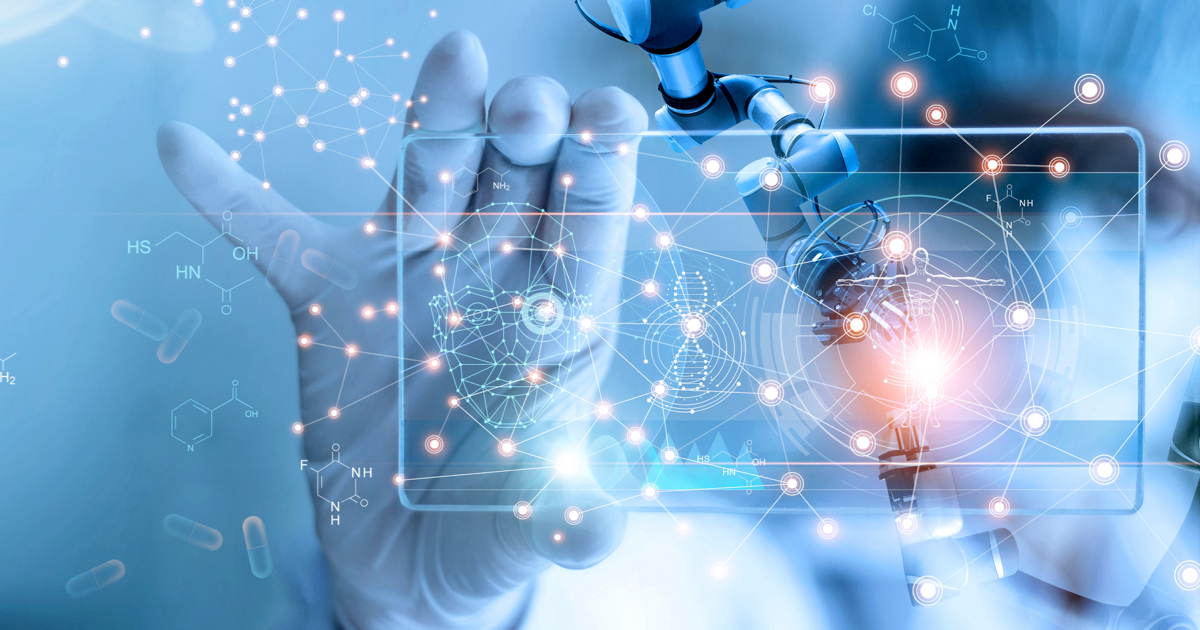Today, Udacity is thrilled to announce the AI for Healthcare Nanodegree program as well as the AI for Healthcare in the time of COVID-19 Virtual Conference. Within the past decade, AI has transformed industries by powering the creation of new products, processes, and experiences that have enabled organizations to deliver more value to their customers at scale. The technology’s impact is apparent in Amazon’s AI-powered supply that has redefined the retail experience, and BMW’s AI-based models that have optimized the automotive manufacturing process.
The healthcare industry is no different. AI for healthcare is already showing early signs of adoption including the use of surgical robots, data analytics, and using deep learning to reduce diagnosis errors. What’s more, medical professionals and scientists across the globe are seeing the benefits of the practical application of AI in healthcare. For instance, AI-optimized techniques allowed scientists in China to recreate the novel coronavirus’ genome sequence in just one month. In contrast, it took researchers several months to do the same for the SARS virus in 2003.

The Future of Healthcare
The total public and private sector investment in AI for healthcare is expected to reach $6.6 billion by 2021, Forbes reports. Additionally, the same report states that Accenture predicts that “the top AI applications can result in an annual estimated savings of $150 billion by 2026.”
Healthcare data will only increase in the years to come. The quantity of data captured in the healthcare system has been increasing by 878% since 2016, and is expected to grow at a faster rate than data captured in the manufacturing, financial services, or media industries. Specifically, according to Optum, the amount of healthcare data is expected to reach 2,314 exabytes in 2020 (compared to 153 exabytes in 2013).
The influx of data will power the creation of AI-driven tools that will change the way medical staff train and perform their job, and ultimately create more opportunities for AI engineers in the healthcare industry. And given the current pandemic, the demand will only escalate.
We will soon witness a deluge of AI-driven robots that can be used to keep hospital facilities clean and help physicians meet and deliver consultations remotely.
Global healthcare organizations have started witnessing huge demand for data scientists as well since the majority of the data in the healthcare industry is unstructured and is extremely difficult to access and analyze. A simple search on Glassdoor shows approximately 15,000 job openings across roles like Healthcare Data Scientist, Healthcare Machine Learning Engineer, and Research Scientist (ML).
With these factors in mind, Udacity is excited to introduce the all-new AI for Healthcare Nanodegree program.
Program Details
The AI for Healthcare Nanodegree program will allow you to be at the forefront of the Artificial Intelligence revolution and transform patient outcomes.
The course content is designed to train people in the emerging jobs of the healthcare industry so they are equipped to build machine learning models that power medical decision-making and enhance the treatments of the future.
Students will need an intermediate knowledge of Python, intermediate knowledge of Statistics, and Machine Learning experience.
Students who enroll in the AI for Healthcare Nanodegree program will learn how AI is transforming the way patient care is delivered and be equipped with the skills to seek the following job roles after graduating from the program:
- Healthcare Data Scientist
- Healthcare Machine Learning Engineer
- Research Scientist using Machine Learning techniques
The program will also provide insight into how it impacts different aspects of the medical industry, including early detection, more accurate diagnosis, health monitoring, and drug testing.
What’s more, the workspaces will give students a unique method to build models that perform powerful predictive analysis, including the segmentation and quantification of a region of the brain! It’s ideal for data scientists who are eager to apply machine learning techniques to various forms of healthcare data in order to drive enhanced clinical decision-making.
With four real-world, hands-on projects, the AI for Healthcare Nanodegree program teaches students how to develop algorithms that enable healthcare professionals to deploy more precise, efficient, and impactful interventions in order to optimize clinical decision-making at scale.
These projects will be all tailored towards scenarios and problems that healthcare professionals face when it comes to using data to make better decisions.
Project 1: Pneumonia Detection from Chest X-Rays
Analyze data from the NIH Chest X-ray dataset and train a CNN to classify a given chest X-ray for the presence or absence of pneumonia. Then, write an FDA 501(k) validation plan to clear the software for being used as a medical device.
Project 2: Hippocampus Volume Quantification for Alzheimer’s Progression
Create an algorithm that will help clinicians assess hippocampal volume in an automated way and integrate this algorithm into a clinician’s working environment. Then, write up a validation plan that would help collect clinical evidence of the algorithm performance, similar to that required by regulatory authorities.
Project 3: Patient Selection for Diabetes Drug Testing
Act as a data scientist for a healthcare startup that has created a diabetes drug that is ready for clinical testing. Build a regression model to predict the estimated hospitalization time for a patient in order to help select patients for your study.
Project 4: Motion Compensated Pulse Rate Estimation
Build an algorithm which combines information from the IMU and PPG sensors that can estimate the wearer’s pulse rate in the presence of motion. Evaluate algorithm performance and iterate on design until the desired accuracy is achieved.
Be at the Center of the Healthcare Revolution. Enroll Now!
In light of the worldwide COVID-19 pandemic, there has never been a better time to understand the impact of artificial intelligence within the healthcare industry and learn how you can leverage AI to better the world’s healthcare infrastructure.
If you want to be at the forefront of the healthcare industry transformation, then enroll in Udacity’s AI for Healthcare Nanodegree program and learn to apply your Data Science and Artificial Intelligence skills to deliver unprecedented insights into diagnostics, drug discovery, treatment variability, and more to enhance patient outcomes.







